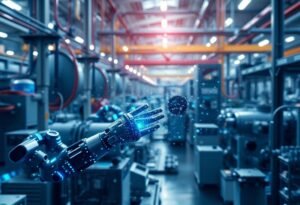The Internet of Things (IoT) has undergone considerable transformation over the last decade, shaping our lives in unprecedented ways. As we look ahead to 2025, innovations in IoT promise to revolutionize industries and enhance our personal experience with technology. Understanding these innovations is crucial for businesses aiming to stay competitive and for individuals keen on adapting to a tech-driven world.
The Expanding Ecosystem of Smart Devices
The growth of the IoT is largely attributed to the ever-increasing number of smart devices entering the market. By 2025, it is estimated that there will be over 75 billion connected devices globally. This expanding ecosystem allows for improved connectivity and interoperability among different gadgets, enabling them to communicate seamlessly. Products like smart home technology, wearables, and connected vehicles exemplify the potential of IoT. With advancements in machine learning and artificial intelligence, these devices will become even more responsive to user needs, creating an enriching and personalized experience.
Enhanced Data Analytics and Insights
Data is at the heart of IoT innovations, and by 2025, the emphasis on data analytics will be paramount. Companies will leverage big data analytics tools to harness the wealth of information generated by connected devices. This capability will enable businesses to derive actionable insights, predict trends, and enhance customer satisfaction. For instance, predictive maintenance in manufacturing will allow companies to foresee equipment failures and reduce downtime, ultimately saving costs and improving efficiency.
The Role of AI in IoT Solutions
Artificial intelligence will play a significant role in shaping the future of IoT. By integrating AI with IoT applications, devices will be able to learn from user interactions, adapting and optimizing their performance. This fusion of technologies will lead to smarter cities, where traffic management systems operate efficiently, and energy consumption is optimized through smart grids. Adoption of AI-driven IoT solutions will not only solve logistical challenges but also enhance sustainability, contributing to a greener future.
Security Challenges and Solutions
Sustainability and the IoT Revolution
With the trajectory towards a more sustainable future, IoT innovations will play a pivotal role in managing resources more effectively. By 2025, we can expect more sustainable practices integrated into everyday IoT solutions, such as smart agriculture that optimizes water usage or energy-efficient buildings controlled by smart technologies. These advancements will not only reduce waste but also lower operational costs, providing economic benefits alongside their environmental impact.
Connecting People with IoT Technologies
The future of IoT in 2025 will focus on enhancing the quality of life through innovative technologies. Remote healthcare monitoring, improved accessibility for disabled individuals, and smart transportation systems are just a few examples of how IoT will boost living standards. By connecting people with devices that serve their needs, we can create a more inclusive and equitable society where technology works for everyone.
In conclusion, the future of IoT in 2025 is set to advance innovation across various sectors. By staying informed and adaptable, both companies and individuals can benefit from these technological advancements.
Disclaimer: The views and opinions expressed in this article are those of the author and do not necessarily reflect the views of any organizations affiliated with the author.





















